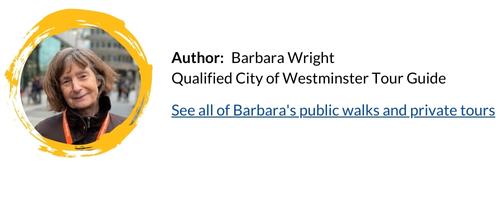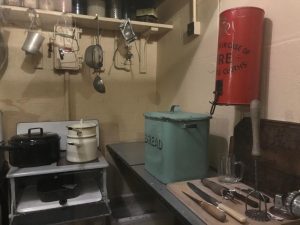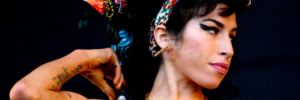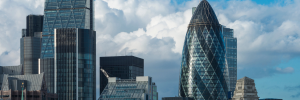A while back I wrote a blog post of how British composers were in short supply which remarked upon the fact that after the great Henry Purcell, British classical music developed very slowly compared with some of our European counterparts but that nevertheless by the late 19th century early 20th century we had started to ‘blossom’ as it were.
Well, there is a similar story to tell with Opera.
By the time of the death of Henry Purcell in 1695, no strong native British operatic traditions had developed and the tendency to use opera as a medium for satire and spoof such as with John Gay’s ‘Beggar’s Opera’, performed first in 1728 or in Thomas Arne’s, ‘Love in a Village’ performed first 1762, did not help with ensuring that serious native works obtained a foothold.

This problem continued until the 19th century when Arthur Sullivan and his promoter D’Oyley Carte tried unsuccessfully to promote serious British opera when the Palace Theatre off Shaftsbury Avenue opened in 1891 as the Royal English Opera House by presenting Sullivan’s opera Ivanhoe.
British opera had originally derived very much from the masque with its lavish visual effects and ingenious machinery and lighting, but the spoken dialogue, found in operas such as ‘King Arthur’ and ‘the Fairy Queen’ by Purcell, for example, was a bit stilted and included long unrelated musical sections. It could not compare with Italian opera whose use of Italian with its open vowels produced joyful and tuneful singing, and better-integrated music and words using the ‘recitative’ style, of singing. Through the use of unmeasured but fluent music, the natural inflexions of speech rhythm were enhanced.
As a consequence, the British in the 18th century were very keen to develop homegrown Italian opera. This was therefore a gift for the young George Frederic Handel who arrived by boat in London in 1710. He was immediately snapped up to compose the music for an Italian-style opera called ‘Rinaldo’ at Her Majesty’s Theatre Haymarket. This became an immediate success when it opened in 1711, commencing Handel’s long and illustrious British musical career starting with Italian-style opera at this venue until 1739 when money and audience enthusiasm started to wane.
It is ironic to think that the magnificent Royal Opera House in Covent Garden, that world centre of excellence for serious opera, owes its building, to one of those jokey operas which it has been suggested originally prevented serious opera from developing here in the first place. What is today called the Royal Opera House was originally called the Theatre Royal, opening in 1732, built by the poet and dramatist John Gay with the profits of a hugely successful comedy opera, ‘The Beggar’s Opera, which he had commissioned.
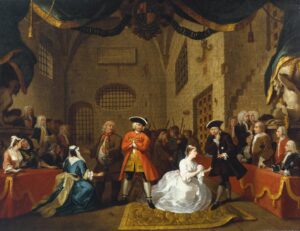
In ‘The Beggar’s Opera’, Gay invented the ‘ballad ‘opera where the characters and settings are given musical substance using popular tunes. The opera was a satire on Italian opera and the love of it by the great British public and he spoofed the great Handel with his use of tunes from ‘Rinaldo’ for example, in the highwaymen’s chorus, he made fun of opera soloists who worked for Handel and who sometimes drove Handel to frustration and perhaps more seriously he lampooned the Prime Minister of the day, Robert Walpole.
To begin with, the new Opera House operated largely as a theatre but in 1734 Handel started presenting his Italian operas here and until his death in 1859, he gave many performances of both operas and oratorios, such as the famous Messiah.
The Opera House was destroyed by fire in 1808 and 1856 and each time rebuilt. The Royal English Opera Company transferred there in 1858 and it became called the Royal Opera House in 1892 when the number of European works increased such as Wagner, Puccini and later Strauss and others.

It was really the composer Benjamin Britten who finally got British opera off the ground forming the English Opera Group in 1947 for the purpose of presenting his and other British operatic music and so we can now say that British serious opera has come into its own, with a grand total of eight operas from Brittan, for example, ‘ Death in Venice’ and ‘The Turn of the Screw ‘but there are other British operas from composers such as William Walton Michael Tippett, Vaughn Williams, Peter Maxwell Davis, all in the 20th century. British serious opera had finally arrived!
Come on my next Composers of the West End Walk – the Royal Opera House is part of the story!

